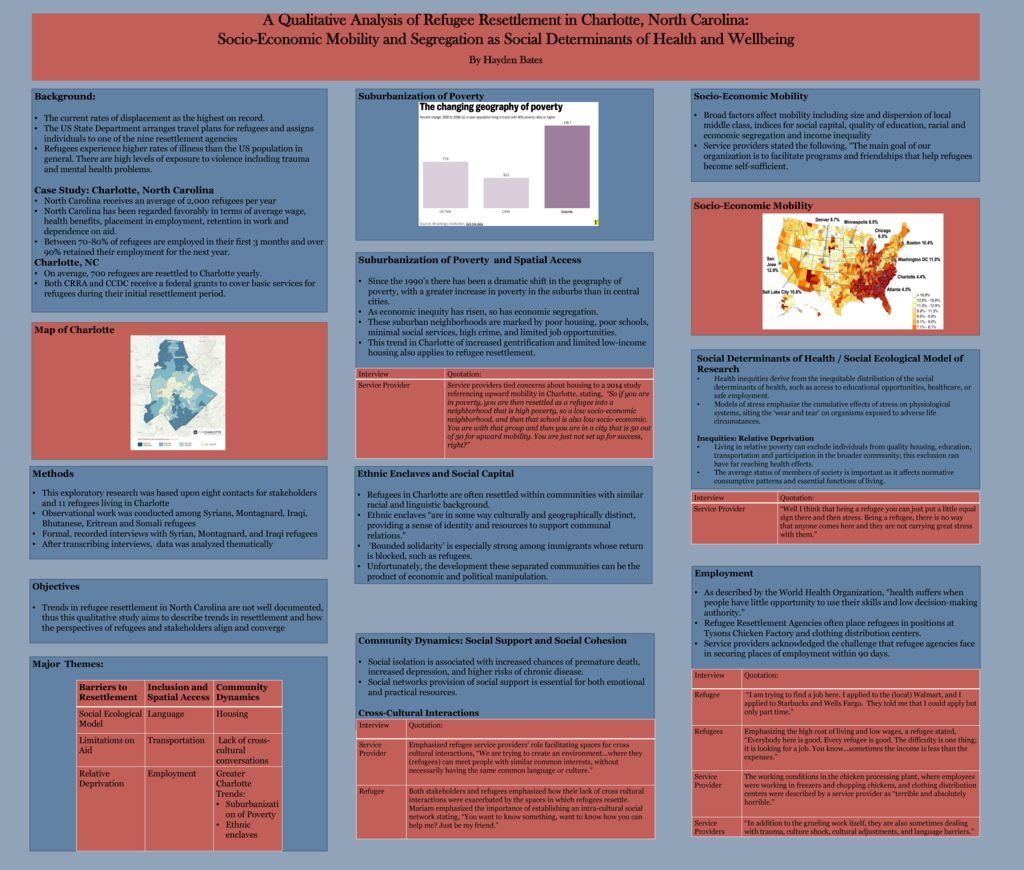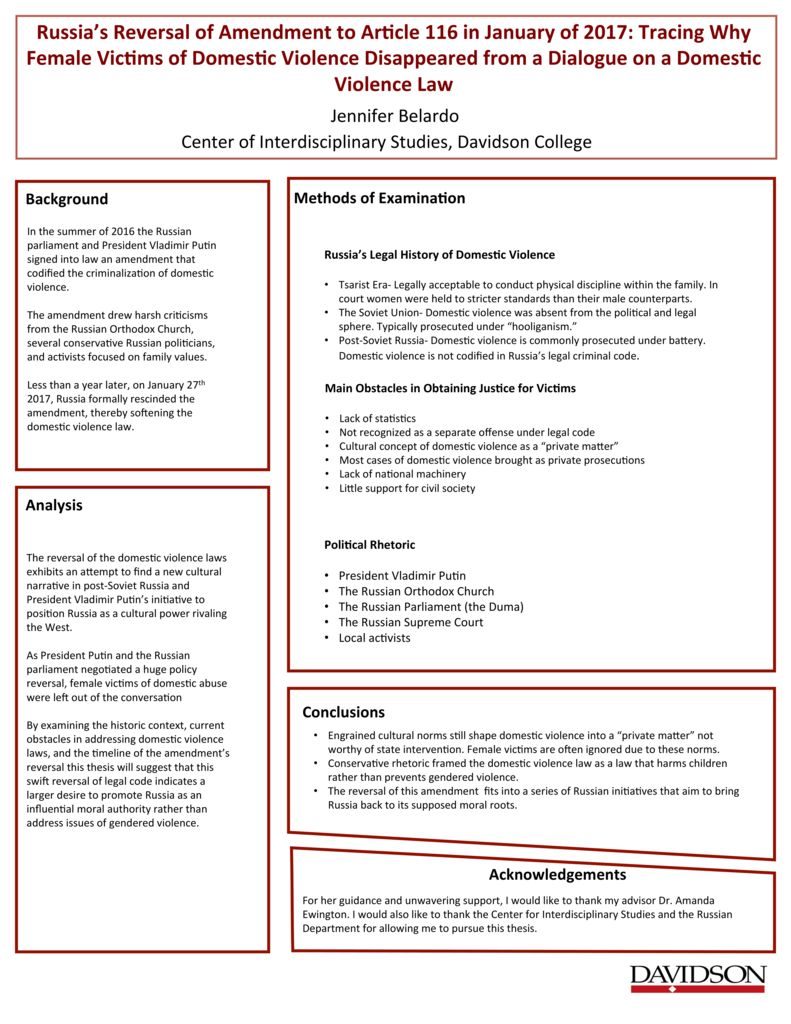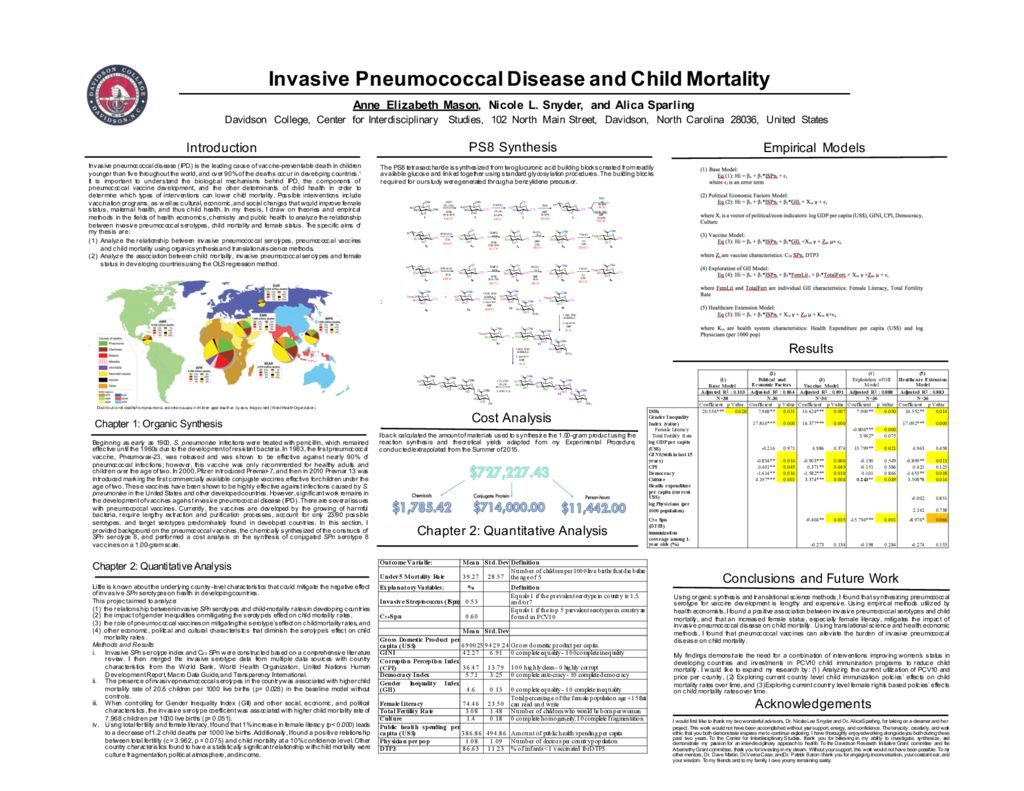Refugee Resettlement in Charlotte, North Carolina:
A Qualitative Study of Health Inequity
This qualitative comparative study focuses on the perspectives of refugees and stakeholders within Charlotte. Semi-structured interviews were used as a means of understanding the perspectives of both parties. Significant time was invested in this community in order to adequately establish both context and contacts for this research. Contacts served as main informants for their own cluster. Given the lack of access to this population, a snow-ball sample was utilized, in which participants had the opportunity to recommend other contacts. A thematic analysis of both the positive and challenging aspects of resettlement in Charlotte revealed how the perspectives of these sample populations differ and converge. The social ecological model of public health research framed this exploratory research, acknowledging the complex and interconnected determinants of health. Interviews with both stakeholders and refugees revealed challenges with navigating community dynamics and accessing affordable housing and employment opportunities in Charlotte. Interviews with refugees and stakeholders described how Charlotte’s lack of upward mobility and low-income housing make resettling into Charlotte especially challenging for refugees. This research reveals the nuances of how specific marginalized populations experience health inequities and how broader trends in employment, housing and community dynamics can exacerbate disparities.







